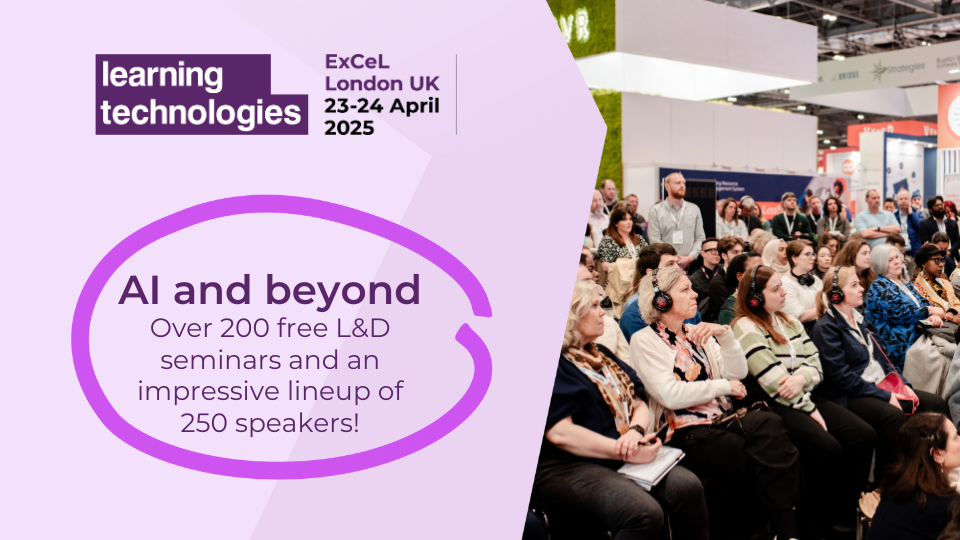Adapting to the realities of the climate crisis is becoming a bigger and bigger part of our everyday lives.
In June last year, the EU adopted a Union-wide guidance on learning for the green transition and sustainable development which calls on Member States to make learning for the Green transition and sustainable development “a priority in education and training policies and programmes”.
Why? Because education is seen as crucial to help ensure we acquire the knowledge to live more sustainably, obtain the skills we will need in a changing labour market and take action to create a common sustainable future.
Adapting to the realities of the climate crisis is becoming a bigger and bigger part of our everyday lives
Checking your environmental credentials
In fact, for the growing majority of 25-35 year olds, environmental credentials is now a key criteria in making career choices.
The same thirst for knowledge; to build positive strategies to save the planet; is happening in companies.
I know this as I work alongside major brands like Microsoft, PwC and Ubisoft every day to help them keep their teams on the forefront of the climate agenda.
For the growing majority of 25-35 year olds, environmental credentials is now a key criteria in making career choices
Leading the charge to sustainability
These corporations all want to upskill their staff on the transition to a more sustainable future, and it’s patently the case that it’s going to be L&D that will lead the charge in doing the same for the organisation that you work for.
This may sound like an overwhelming challenge, but you can find some reassurance in how well you coped with the last challenge of this magnitude – powering your colleagues up to conduct often a very successful digital transformation (DT).
It’s everybody’s job
Both DT and the green transformation are huge evolutions in pretty much everything the organisation does.
Plus, they were both originally seen as the job of just one team – IT department in DT, and in the move to Green, the CSR/ESG departments – but were soon accepted as integral to the entire company and, indeed, ‘everyone’s job’.
This is not to say that everyone needs to be an ‘expert’ in sustainability, just as not everyone in a company is a digital expert, can code or understands how the internal intranet network might operate.
With sustainability, there isn’t one job that covers all our needs, as everything from accounts to R&D to logistics will probably need to encompass some sort of green transformation
It’s time to start the green transformation
Although we did once talk about very exotic digital jobs being needed like Augmented Reality Architect or 3D Printing Engineers, what actually happened was that existing jobs just extended or embraced more digital ways of working.
The same thing is overwhelmingly likely to happen with Greening and de-carbonisation of the economy.
Yes, we’ll have some new job titles (and so, roles to train for, like Green Energy or CO2 Manager), but sales people will still exist, for example, they’ll just do their job in more sustainable ways, and be aware of a more sustainable corporate mission beyond that.
Closing the gaps
You can also see that just like you helped the C-Suite make DT work, you’ll soon be focused on transforming the business and closing the skills gap with the same tools of education, up-skilling some people, and re-skilling where necessary.
It’s even possible to say that the digital transformation will enable a faster transition to sustainability, as we’ve got a model now of how to make mass cross-organisational change and education work in a relatively short period of time.
Think about how training is currently delivered with e-learning, webinars, online conferences, modules and MOOCs.
You’ll soon be focused on transforming the business and closing the skills gap with the same tools of education, up-skilling some people, and re-skilling where necessary
There will be some differences to navigate
Be optimistic, but bear in mind this isn’t quite a complete 1:1 mapping from your DT L&D strategy to your Green Economy one.
For example, whilst it can be said that we digitally transformed in response to some customer demand and market pressure, the societal demand to move to sustainability is being felt as much more urgent than DT was.
NielsenIQ and McKinsey have just analysed five years of US sales data (2017 to June 2022). The pair found that products making ESG-related claims averaged 28% growth in that timeframe versus only 20% for products that made no such claims.
In other words, there’s consumer demand but the real driver of Green is politics, in the shape of things like the Paris Agreement and other UN goals and things like Scope 3 regulatory strictures.
Be optimistic, but bear in mind this isn’t quite a complete 1:1 mapping from your DT L&D strategy to your Green Economy one
The stakes are high
By the same token, the stakes for your business are infinitely higher with a transition to using new sources of energy or completely new manufacturing processes or supply chain partners.
That just wasn’t the case for DT but does underline the need for cross-organisational collaboration, communication and education.
That broad impact of the Green Revolution also applies to the kind of job roles HR will soon be asked to try and help source (and L&D to train)
New roles and training
That broad impact of the Green Revolution also applies to the kind of job roles HR will soon be asked to try and help source (and L&D to train).
In DT, we primarily wanted developer or digital expertise; with sustainability, there isn’t one job that covers all our needs, as everything from accounts to R&D to logistics will probably need to encompass some sort of green transformation.
En route to a green and optimistic future
We should be optimistic that the move to a Greener organisation is doable, as it follows some of the tracks that our solid work and learnings around digital transformation laid down.
We have our map and captain, ESG strategy and head of sustainability, we just need to upskill and educate the crew to steer our company away from the impending iceberg … or rocks, since it is likely it might have melted by then.
If you enjoyed this, read: Developing the microskills essential for digital transformation
Adapting to the realities of the climate crisis is becoming a bigger and bigger part of our everyday lives.
In June last year, the EU adopted a Union-wide guidance on learning for the green transition and sustainable development which calls on Member States to make learning for the Green transition and sustainable development “a priority in education and training policies and programmes”.
Why? Because education is seen as crucial to help ensure we acquire the knowledge to live more sustainably, obtain the skills we will need in a changing labour market and take action to create a common sustainable future.
Adapting to the realities of the climate crisis is becoming a bigger and bigger part of our everyday lives
Checking your environmental credentials
In fact, for the growing majority of 25-35 year olds, environmental credentials is now a key criteria in making career choices.
The same thirst for knowledge; to build positive strategies to save the planet; is happening in companies.
I know this as I work alongside major brands like Microsoft, PwC and Ubisoft every day to help them keep their teams on the forefront of the climate agenda.
For the growing majority of 25-35 year olds, environmental credentials is now a key criteria in making career choices
Leading the charge to sustainability
These corporations all want to upskill their staff on the transition to a more sustainable future, and it’s patently the case that it’s going to be L&D that will lead the charge in doing the same for the organisation that you work for.
This may sound like an overwhelming challenge, but you can find some reassurance in how well you coped with the last challenge of this magnitude – powering your colleagues up to conduct often a very successful digital transformation (DT).
It’s everybody’s job
Both DT and the green transformation are huge evolutions in pretty much everything the organisation does.
Plus, they were both originally seen as the job of just one team – IT department in DT, and in the move to Green, the CSR/ESG departments – but were soon accepted as integral to the entire company and, indeed, ‘everyone’s job’.
This is not to say that everyone needs to be an ‘expert’ in sustainability, just as not everyone in a company is a digital expert, can code or understands how the internal intranet network might operate.
With sustainability, there isn’t one job that covers all our needs, as everything from accounts to R&D to logistics will probably need to encompass some sort of green transformation
It’s time to start the green transformation
Although we did once talk about very exotic digital jobs being needed like Augmented Reality Architect or 3D Printing Engineers, what actually happened was that existing jobs just extended or embraced more digital ways of working.
The same thing is overwhelmingly likely to happen with Greening and de-carbonisation of the economy.
Yes, we’ll have some new job titles (and so, roles to train for, like Green Energy or CO2 Manager), but sales people will still exist, for example, they’ll just do their job in more sustainable ways, and be aware of a more sustainable corporate mission beyond that.
Closing the gaps
You can also see that just like you helped the C-Suite make DT work, you’ll soon be focused on transforming the business and closing the skills gap with the same tools of education, up-skilling some people, and re-skilling where necessary.
It’s even possible to say that the digital transformation will enable a faster transition to sustainability, as we’ve got a model now of how to make mass cross-organisational change and education work in a relatively short period of time.
Think about how training is currently delivered with e-learning, webinars, online conferences, modules and MOOCs.
You’ll soon be focused on transforming the business and closing the skills gap with the same tools of education, up-skilling some people, and re-skilling where necessary
There will be some differences to navigate
Be optimistic, but bear in mind this isn’t quite a complete 1:1 mapping from your DT L&D strategy to your Green Economy one.
For example, whilst it can be said that we digitally transformed in response to some customer demand and market pressure, the societal demand to move to sustainability is being felt as much more urgent than DT was.
NielsenIQ and McKinsey have just analysed five years of US sales data (2017 to June 2022). The pair found that products making ESG-related claims averaged 28% growth in that timeframe versus only 20% for products that made no such claims.
In other words, there's consumer demand but the real driver of Green is politics, in the shape of things like the Paris Agreement and other UN goals and things like Scope 3 regulatory strictures.
Be optimistic, but bear in mind this isn’t quite a complete 1:1 mapping from your DT L&D strategy to your Green Economy one
The stakes are high
By the same token, the stakes for your business are infinitely higher with a transition to using new sources of energy or completely new manufacturing processes or supply chain partners.
That just wasn’t the case for DT but does underline the need for cross-organisational collaboration, communication and education.
That broad impact of the Green Revolution also applies to the kind of job roles HR will soon be asked to try and help source (and L&D to train)
New roles and training
That broad impact of the Green Revolution also applies to the kind of job roles HR will soon be asked to try and help source (and L&D to train).
In DT, we primarily wanted developer or digital expertise; with sustainability, there isn’t one job that covers all our needs, as everything from accounts to R&D to logistics will probably need to encompass some sort of green transformation.
En route to a green and optimistic future
We should be optimistic that the move to a Greener organisation is doable, as it follows some of the tracks that our solid work and learnings around digital transformation laid down.
We have our map and captain, ESG strategy and head of sustainability, we just need to upskill and educate the crew to steer our company away from the impending iceberg … or rocks, since it is likely it might have melted by then.
If you enjoyed this, read: Developing the microskills essential for digital transformation








